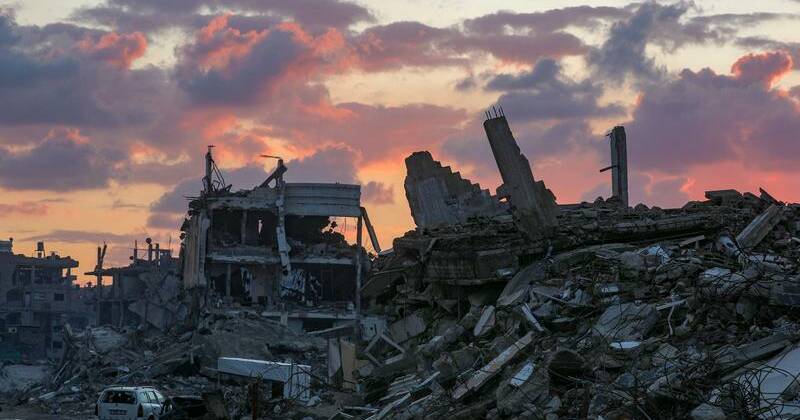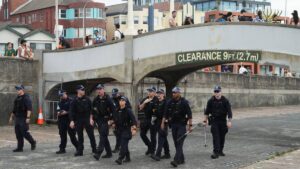
The UN Security Council has approved a plan proposed by the United States to establish an international stabilisation force in Gaza. This decision comes as part of efforts to provide security in the region following extensive conflict between Israel and Hamas. The resolution passed with a vote of 13-0 on Monday, with both Russia and China abstaining.
This vote is seen as a crucial step towards maintaining a fragile ceasefire and outlining a potential future for Palestinian statehood. Countries in the Arab and Muslim world, which have expressed interest in contributing troops to the international force, indicated that Security Council authorisation was essential for their participation.
Details of the Resolution
The US resolution endorses President Donald Trump’s 20-point ceasefire plan, which proposes the formation of a Board of Peace to act as a transitional authority. Trump is expected to lead this board. The resolution grants the stabilisation force a broad mandate, including overseeing borders, providing security, and facilitating demilitarisation efforts in Gaza. The authorisation for both the board and the force is set to expire at the end of 2027.
US Ambassador to the UN Mike Waltz described the resolution as “historic and constructive,” asserting that it initiates a new direction for stability in the Middle East. He remarked, “Today’s resolution represents another significant step towards a stable Gaza that will be able to prosper and an environment that will allow Israel to live in security.” Waltz emphasised that this resolution is merely the beginning of a longer process.
During negotiations that lasted nearly two weeks, Arab nations and Palestinian representatives urged the US to strengthen language relating to Palestinian self-determination. The final text was amended to state that, following reforms by the Palestinian Authority and progress in the redevelopment of Gaza, “the conditions may finally be in place for a credible pathway to Palestinian self-determination and statehood.”
Regional Reactions and Implications
The resolution’s language has sparked discontent in Israel, with Prime Minister Benjamin Netanyahu opposing any measures that could lead to the establishment of a Palestinian state. Netanyahu contends that this move would reward Hamas and could result in the formation of a larger Hamas-controlled entity adjacent to Israel’s borders.
Support from Arab and Muslim nations has been pivotal for the resolution’s adoption, particularly those advocating for a ceasefire and potential contributions to the international force. The US mission to the UN circulated a joint statement from several nations, including Qatar, Egypt, and Saudi Arabia, that called for the “swift adoption” of the US proposal.
The vote occurred amidst ongoing hopes for the continuation of Gaza’s fragile ceasefire, which was initially triggered by Hamas’ surprise attack on southern Israel on October 7, 2023. This attack resulted in approximately 1,200 fatalities in Israel, while the prolonged Israeli offensive has reportedly claimed over 69,000 Palestinian lives, according to the Gaza health ministry.
Following the vote, Russia introduced a competing resolution that offered stronger language supporting Palestinian statehood and emphasized the need for the West Bank and Gaza to operate under the Palestinian Authority. This alternative proposal sought to remove references to the transitional board and requested UN Secretary-General Antonio Guterres to explore options for an international force to ensure security in Gaza and implement the ceasefire plan.
The US resolution mandates that the stabilisation force ensure “the process of demilitarising the Gaza Strip” and oversee the “permanent decommissioning of weapons from non-state armed groups.” A significant challenge remains regarding the disarmament of Hamas, which has not fully endorsed this step. The resolution permits the force to “use all necessary measures to carry out its mandate,” which aligns with UN language pertaining to military actions.
As the international force establishes control and fosters stability within Gaza, the resolution outlines that Israeli forces will withdraw from the territory based on specific standards, milestones, and timeframes associated with demilitarisation efforts. The stabilisation troops will also work alongside a Palestinian police force that has been trained and vetted, coordinating with neighbouring Egypt and Israel to facilitate the flow of humanitarian aid.
The passage of this resolution marks a significant moment in addressing the ongoing conflict in Gaza and sets the stage for future diplomatic discussions regarding the broader Palestinian issue.






